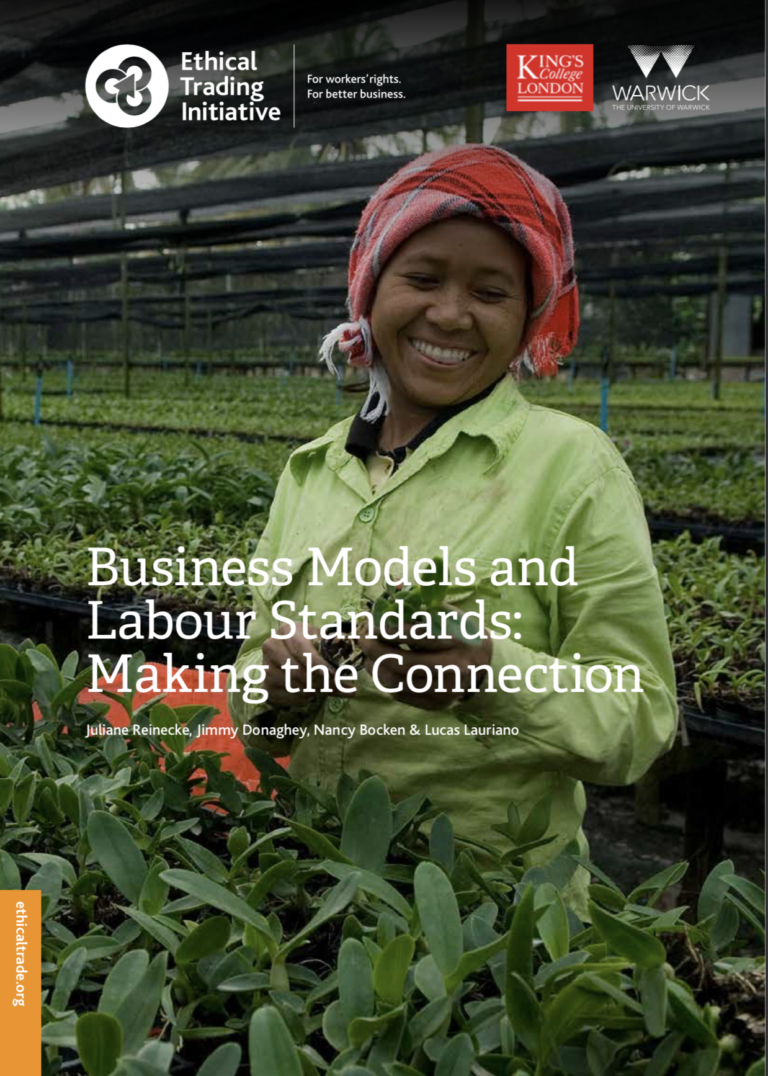This report is aimed at opening up a new front of discussion that looks at how business models create these downward pressures on labour standards and argues that until such models are changed the problems with the Corporate Social Responsibility (CSR) approach will persist. As will be discussed, the ways in which the business models might change can differ greatly, but until the models change the problems will persist. The report, focusing on the apparel and food sectors, thus has two objectives:
- To understand how flaws in prevailing business models create systemic downward pressures on workers’ rights;
- To identify opportunities for Business Model Innovation and draw lessons from these.

